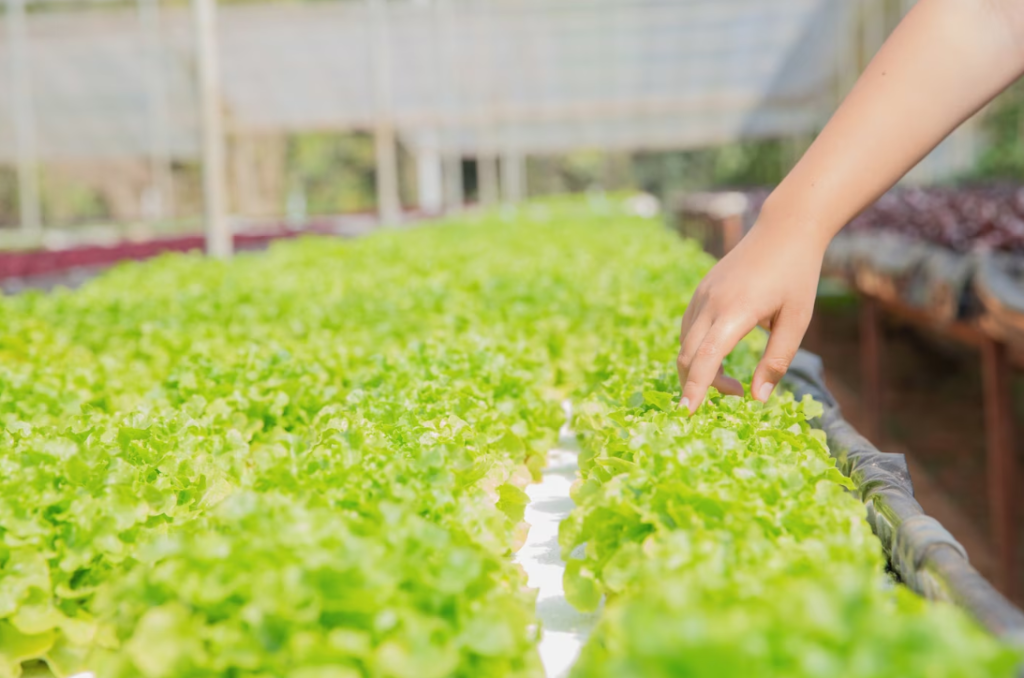Balancing Ecosystems: Exploring Aquaponics Technology for Sustainable Modern Farming
In the realm of modern agriculture, innovation takes center stage, and the aquaponics system has emerged as a beacon of sustainable farming practices. Malaysia, with its diverse agricultural landscape, is embracing this revolutionary technology to reshape the way food is produced. Endona Sdn Bhd, a leader in smart farming solutions in Malaysia, is at the forefront of introducing aquaponics technology to the nation. Let’s delve into the world of aquaponics and its impact on Malaysia’s agricultural sector.
Aquaponics Technology: A Harmonious Alliance of Aquaculture and Hydroponics
Aquaponics technology in Malaysia marries two distinct methods of farming – aquaculture and hydroponics. This ingenious synergy creates a self-sustaining ecosystem where fish and plants coexist to benefit each other. Fish waste, which is rich in nutrients, serves as a natural fertilizer for the plants, while the plants purify the water, creating an environment conducive to healthy fish growth. This closed-loop system reduces waste and optimizes resource utilization, making it a prime example of sustainable modern farming in Malaysia.
Advantages of Aquaponics Technology in Malaysia
The integration of aquaponics technology brings forth a multitude of benefits for Malaysia’s farming landscape.
- Space Efficiency: With land becoming increasingly limited, aquaponics offers a solution. The vertical stacking of growing beds and fish tanks maximizes space utilization, enabling year-round cultivation in compact areas.
- Water Conservation: Aquaponics uses 90% less water compared to traditional soil farming, making it a sustainable choice in water-scarce regions.
- Nutrient-Rich Produce: The natural nutrient exchange in the system results in healthier and more nutritious produce, contributing to improved food quality.
- Reduced Environmental Impact: By eliminating the need for chemical fertilizers and minimizing waste, aquaponics aligns perfectly with eco-conscious farming practices.

Aquaponics and Smart Farming Solutions in Malaysia
As a key player in smart farming solutions in Malaysia, Endona Sdn Bhd recognizes the transformative potential of aquaponics technology. The integration of sensors, automation, and data analytics enhances the efficiency and productivity of aquaponics systems. Sensors monitor water quality, nutrient levels, and fish health in real-time, ensuring optimal conditions. Automation controls feeding and water circulation, minimizing manual labor. This intelligent fusion of technology not only maximizes yields but also exemplifies the synergy between innovation and sustainability.
Transforming the Future of Farming in Malaysia
The adoption of aquaponics technology is more than just a farming practice – it’s a testament to Malaysia’s commitment to modernization and sustainability. This approach holds the promise of decentralized food production, reducing the reliance on imports and enhancing food security. Moreover, it encourages entrepreneurship, enabling individuals to cultivate fresh produce and fish on a small scale, contributing to local economies.
Conclusion: Pioneering a New Era in Malaysian Agriculture with Endona Sdn Bhd
In the tapestry of Malaysia’s agricultural revolution, the aquaponics system stands out as a bold stroke of innovation. Endona Sdn Bhd’s dedication to introducing this technology is a testament to their role as a visionary in smart farming solutions in Malaysia.
As the aquaponics system gains traction, it not only addresses the challenges of space and resource constraints but also creates a roadmap for a sustainable and resilient farming future. By fostering a harmonious coexistence of aquatic life and plants, this system embodies the essence of symbiotic living and reminds us that innovation can indeed thrive in harmony with nature. In the hands of pioneers like Endona Sdn Bhd, aquaponics becomes more than just a method – it’s a philosophy that can reshape the way we think about food production and environmental stewardship.
